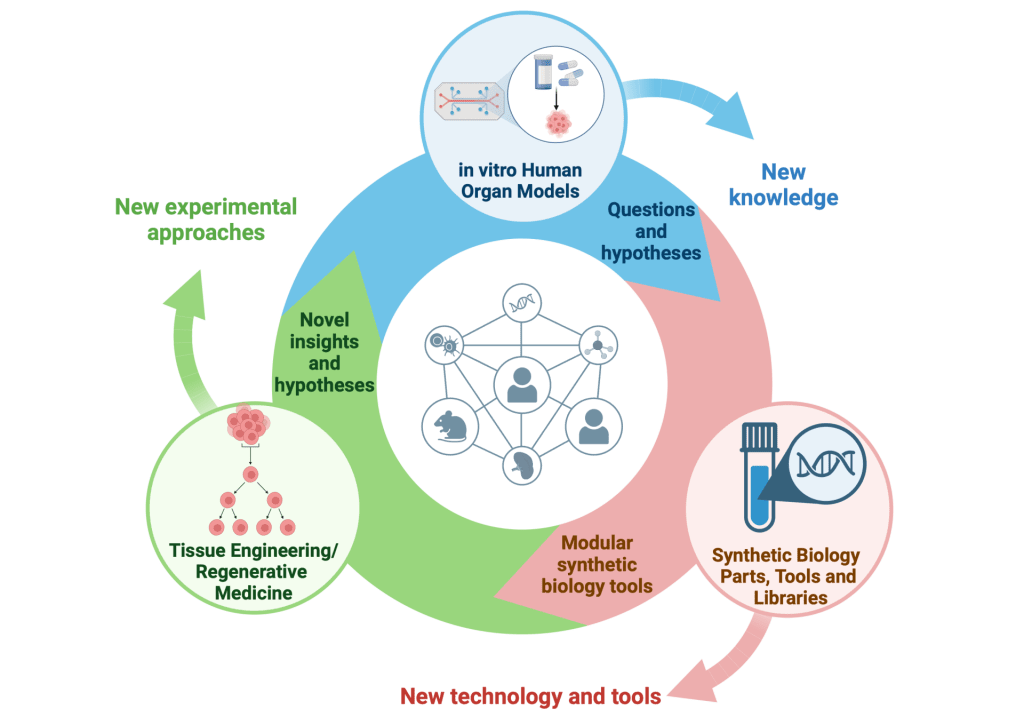Develop mammalian synthetic biology tools for biomedical applications
Research Focus
Cell state sensing

Cell fate bioengineering

organ-on-a-chip



What we do is important
More than 85% of pre-clinically tested drugs fail their
clinical trials, emphasizing the importance of
humanized models for pre-clinically testing treatment
efficacies. Significant efforts have been made to
mimic human physiological and pathological
microenvironments with organ-on-a-chip technology.
The translational value of microfluidic organ models
will be substantially enhanced by adopting patient-
specific cells derived from induced pluripotent stem
cells (hiPSCs). However, only limited cell types have
been derived from hiPSCs as the differentiation is
largely guided by externally administered small
molecules/cytokines to perturb endogenous pathways
in a trial-and-error manner. Systematic genetic tools
are urgently needed to guide the desired cell state
transitions for these applications. Mammalian
synthetic biology is a revolutionary approach to
harness genetic regimens by rational designs. My
research group will synergistically integrate
microfluidics, regenerative medicine, and synthetic
biology to provide unprecedented opportunities for
establishing human physiological and pathological
models and developing novel treatments against
previously intractable diseases, such as cancer.

Live Cell State Sensing
Sensing and guidance of cell state transitions via endoribonuclease mediated microRNA sensors
Contact

lei1.wang at northeastern.edu
ADDRESS
360 Huntington Ave
ISEC building 316
Boston, MA 02115